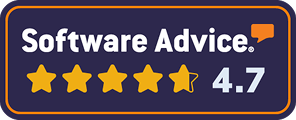Soccer Coach
Resume Template
Create a winning impression with our Harvard University Approved template for Soccer Coach.
Soccer Coach
Resume Template
Create a winning impression with our Harvard University Approved template for Soccer Coach.


Join the Course
Soccer Coach Resume Sample (2025)
How to Present Your Contact Information
- Full name.
- Professional email address (avoid unprofessional ones).
- Link to your portfolio, LinkedIn, or relevant online profiles (if applicable).
- Phone number with a professional voicemail.
How to Write a Great Soccer Coach Resume Summary
Dynamic Soccer Coach with over 10 years of experience in leading teams to victory in regional and national leagues. Proficient in developing training programs that enhance player performance and team dynamics. Seeking to leverage a proven track record of success and a passion for soccer to inspire athletes and lead a competitive team to excellence.
What Skills to Add to Your Soccer Coach Resume
Technical Skills:
- Skills in game strategy development
- Certification in coaching (such as UEFA A License)
- Player performance analysis software
- First aid certification
Soft Skills:
- Leadership
- Motivational skills
- Communication
- Problem-solving
- Time management
What are Soccer Coach KPIs and OKRs, and How Do They Fit Your Resume?
KPIs (Key Performance Indicators):
- Win-loss record
- Player skill improvement rate
- Team progression in leagues
OKRs (Objectives and Key Results):
- Increase team's win rate by 20% over the season
- Develop three players for national selection
- Implement a new training program leading to a 30% improvement in gameplay efficiency
How to Describe Your Soccer Coach Experience
List your experience in reverse chronological order. Focus on achievements, responsibilities, and quantifiable outcomes.
Right Example:
- Developed a comprehensive training program that led the team to a state championship title, increasing team performance by 25%.
- Successfully managed and led a youth soccer team to national-level competitions, achieving a win rate of 70% over two seasons.
- Conducted individual player assessments to improve skills, resulting in three players being selected for regional teams.
Wrong Example:
- Managed a soccer team.
- Worked with players each week.
- Ran training sessions.







